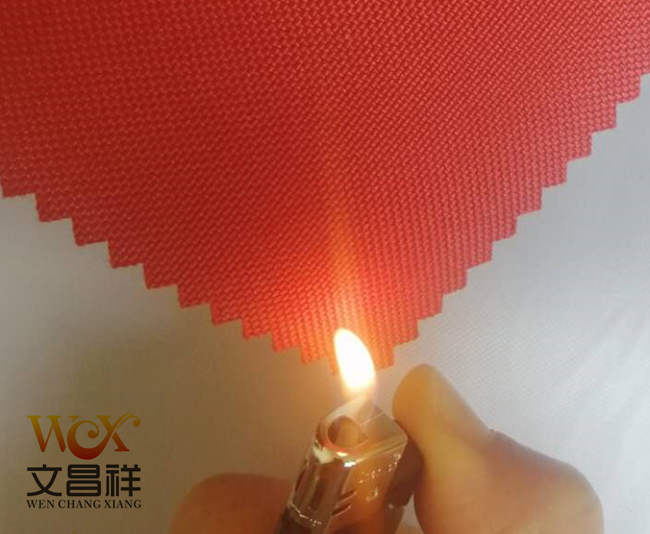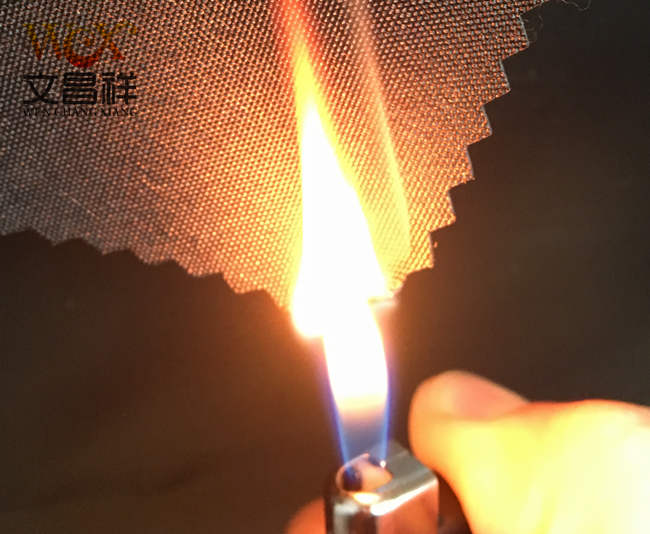Fire-retardant and flame-retardant fabrics are dyed with a flame-retardant process. Flame retardants are added through polymer polymerization, blending, copolymerization, extrusion modification and other technologies to make the fabric flame-retardant. sex. The finished fabric can not only effectively prevent the spread of flames, but also protect its original performance. It can automatically extinguish and carbonize the fabric to form an isolation layer. burning effect.

Performance of fire-retardant fabric: used in low temperature -70℃ to high temperature 230℃; resistant to ozone, oxygen, light and climate aging, excellent weather resistance for outdoor use, lifespan up to 10 years; high insulation performance, dielectric constant 3 -3.2, breakdown voltage 20-50KV/MM.

The flame-retardant Oxford cloth is an independently developed flame-retardant process. Its effect is somewhat insignificant, either extinguishing immediately after leaving the fire, or extinguishing within a few seconds, etc., with a test report attached. Fire-proof and flame-retardant Oxford cloth is fire-proof, has low capacity, resists thermal shock, fire protection, and is easy to construct. It has the characteristics of softness, heat resistance, high temperature resistance, good chemical stability, resistance to various chemical corrosion, moth-proof, mildew-proof, and environmental protection. .

What are the specifications of Oxford cloth? Such as 1680D, 1200D, 900D, 600D, 420D, 300D, 210D, 150D and other Oxford cloth. Oxford cloth functional classification: flame retardant Oxford cloth, waterproof Oxford cloth, PVC Oxford cloth, PU Oxford cloth, camouflage Oxford cloth, fluorescent Oxford cloth, Printed Oxford cloth, composite Oxford cloth, etc.
</p







